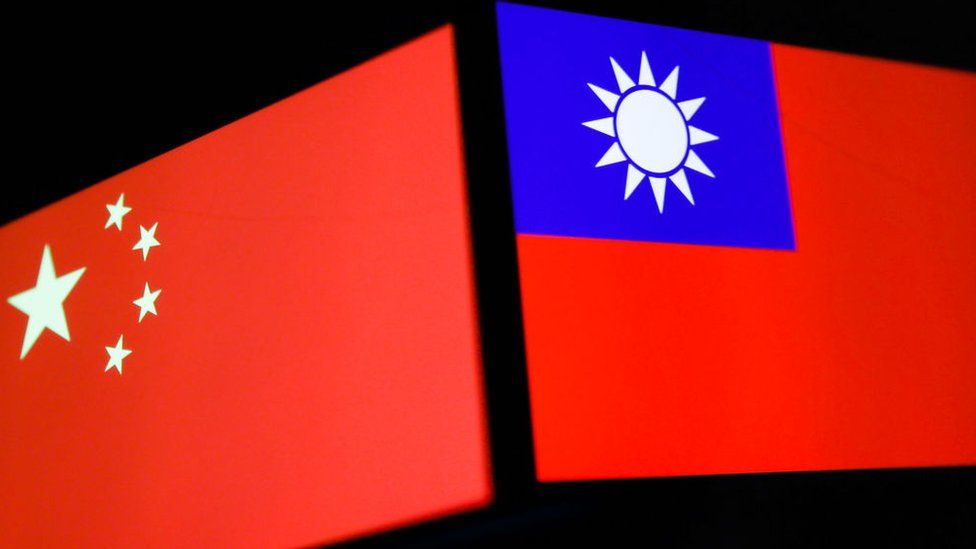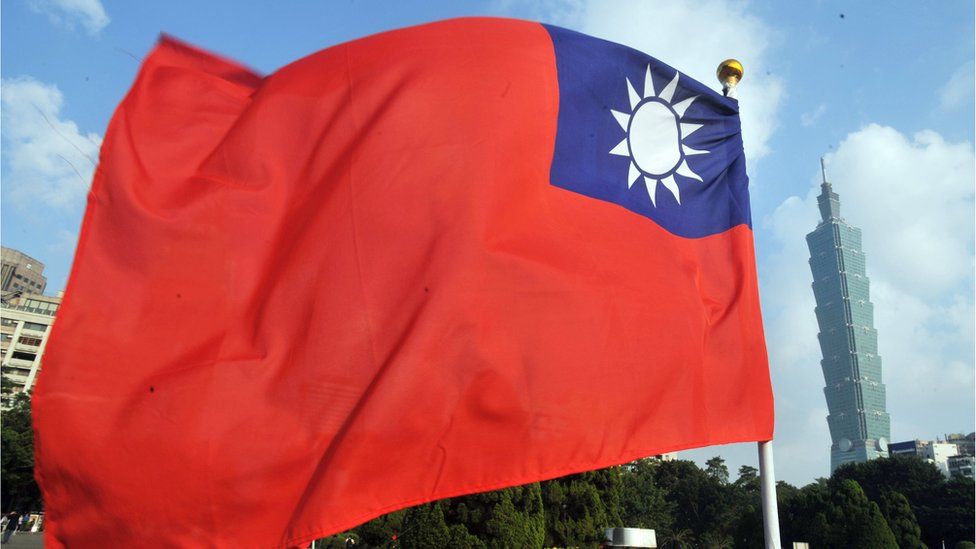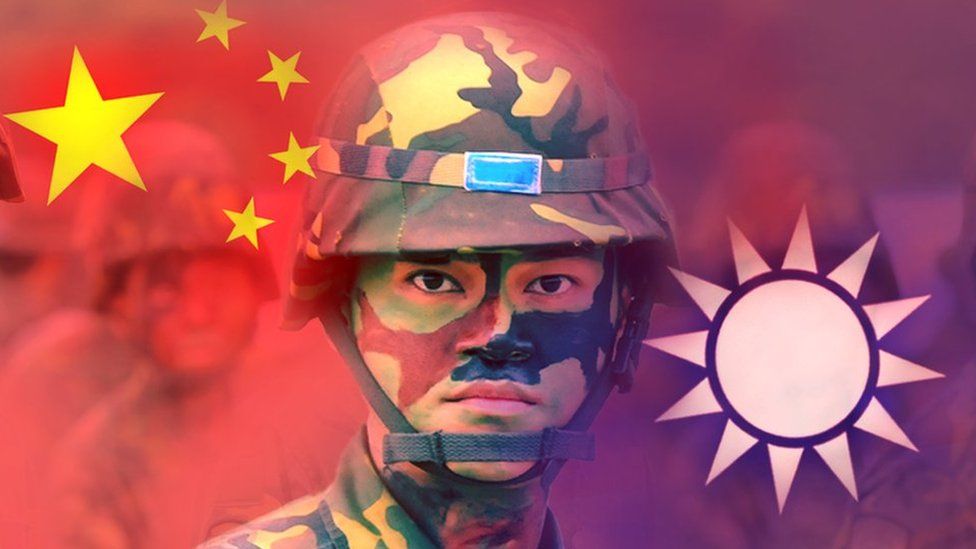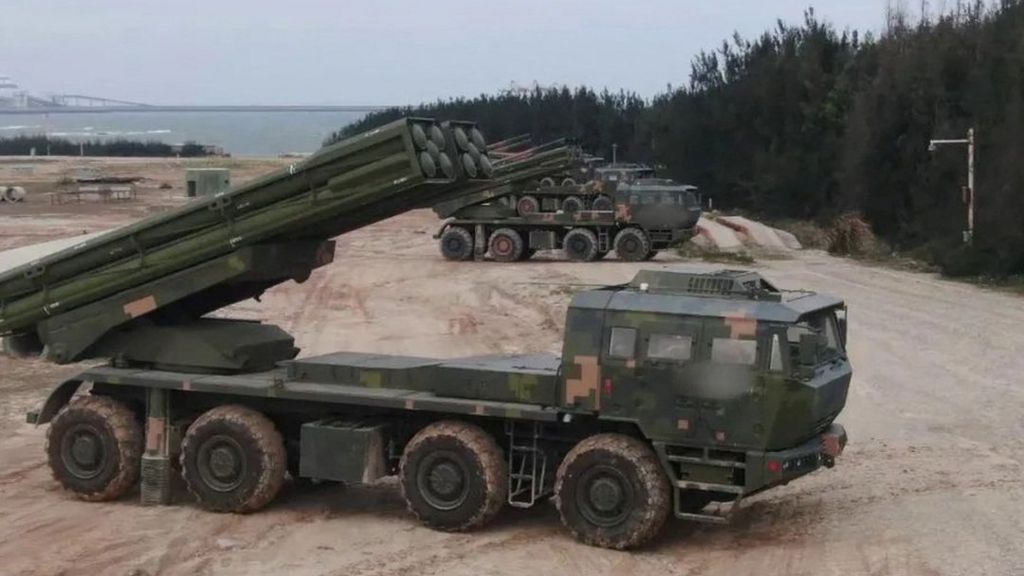
China says it will prosecute a Taiwanese man for alleged secession, in the latest move against Taiwan-linked individuals on mainland Chinese soil.
Yang Chih-yuan, the founder of a pro-independence Taiwanese political party, was detained in China last year.
In recent weeks China has also detained a book publisher and reporters working for a Taiwan broadcaster.
Taiwan has criticised China’s “arbitrary arrests”, saying they were “severely damaging” to human rights.
The latest case centres on Mr Yang, who was based in Taiwan and had founded the Taiwanese National Party.
The 32-year-old had travelled to China last year for unknown reasons. In August, he was arrested in the eastern Chinese city of Wenzhou on suspicion of “separatism”.
At the time his detention was linked to a Chinese crackdown on “separatists” amid tensions over former US House Speaker Nancy Pelosi’s trip to Taiwan.
On Tuesday, Chinese authorities said they had completed an investigation into Yang Chih-yuan and had put him under formal arrest.
Chinese state media reported that he had been “poisoned by thoughts of Taiwan independence secessionism for a long time” and been “actively scheming” to work towards formal statehood for Taiwan.
Through his party he had “actively planned and implemented” a series of events to “seek independence and reject unification”, fuelling cross-strait tensions.
State media also said that Mr Yang had advocated for Hong Kong’s independence with other “separatist” forces.
The issue of “secession” is sensitive in China as it sees Taiwan as a breakaway province that will eventually be brought under Beijing’s control.
On Tuesday, Taiwan’s Mainland Affairs Council, a cabinet-level agency responsible for cross-strait relations, said it had repeatedly asked for Mr Yang to be released since his arrest in August, but did not receive a positive response from China.
News of Mr Yang’s prosecution comes after the disappearance of Taiwan-based book publisher Li Yanhe earlier this month.
Chinese authorities have not released any details on Mr Li’s case, and his alleged arrest was first reported by his friends.
Mr Li, who is better known by his pen name Fucha, was born in China and relocated to Taiwan in 2009. There, he set up Gusa Press, which has published books that are critical of Beijing.
Friends say Mr Li had arrived in China earlier this month to visit relatives as well as for Qing Ming, the annual Chinese tomb-sweeping festival.
Taiwan’s Mainland Affairs Council said last week that Li was “safe” and that the government is paying attention to the case, but declined to give further details.
Mr Li’s alleged detention has been widely compared with the disappearance of five Hong Kong booksellers in 2015 from a shop known for selling works critical of China. They eventually turned up in the custody of mainland Chinese authorities, amid an investigation into their publishing business.
Dozens of writers, scholars and activists have called for his release. The Taiwan Foreign Correspondents Club said on Monday that China should “respect the freedom of the press that it enshrines in its constitution, and to release all unjustly imprisoned media workers”.
Also this month, two Taiwan-based reporters for Taiwan’s EBC News were detained by Chinese authorities while filming military exercises in Pingtan county in China’s Fujian province.
Local media have identified the reporters by the last names, Huang and Li. They are said to be safe and maintain daily contact with a director at their company.
Taiwanese authorities on Tuesday reminded their residents to “assess relevant risks” before visiting China.
“You should realise that mainland China is accustomed to random violations of personal safety,” a MAC spokesperson said.

China and Taiwan: The basics
- Why do China and Taiwan have poor relations? China sees the self-ruled island as a part of its territory and insists it should be unified with the mainland, by force if necessary
- How is Taiwan governed? The island has its own constitution, democratically elected leaders, and about 300,000 active troops in its armed forces
- Who recognises Taiwan? Only a few countries recognise Taiwan. Most recognise the Chinese government in Beijing instead. The US has no official ties with Taiwan but does have a law which requires it to provide the island with the means to defend itself

-
-
2 August 2022

-


